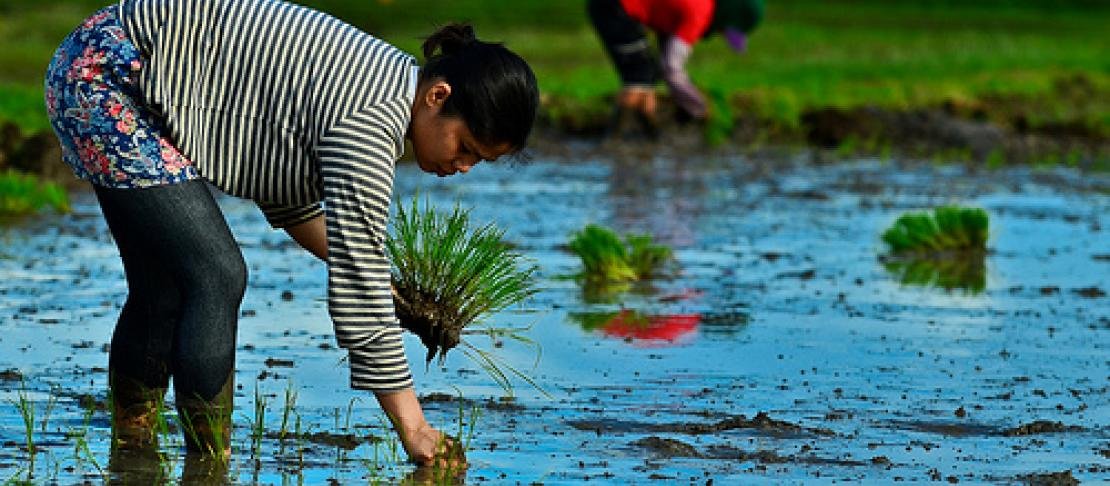Monday, 23 February 2026

In a landmark effort to decarbonize agriculture and bolster climate resilience, the Government of Kerala and the International Rice Research Institute (IRRI) have signed a Memorandum of Understanding (MoU) under the World Bank-supported KERA project. The collaboration aims to scale low-emission, climate-smart rice farming practices across 22,000 hectares, directly benefiting over 45,000 farmers in the state.
The Kerala Climate Resilient Agri-Value Chain Modernization Project—better known as KERA—is positioned to become a transformative model for sustainable rice systems in India. IRRI, the lead technical partner in the initiative, will help co-develop and implement Low Emission Packages (LEPs), introduce digital water management technologies, and support the creation of enabling frameworks for carbon finance. The overarching goal is to transition Kerala’s traditional rice-farming systems—often associated with high greenhouse gas emissions—toward more sustainable, science-led practices that preserve productivity while curbing environmental impact.
The MoU reflects a shared commitment to collaborative climate action, with the Department of Agriculture Development and Farmers’ Welfare, Department of Irrigation, and Soil Survey & Soil Conservation Department of Kerala spearheading the state’s involvement. Kerala Agricultural University (KAU) will contribute scientific expertise and field-level training, while the Centre for Water Resources Development and Management (CWRDM) will guide irrigation reforms. Farmer collectives such as Padasekhara Samitis and Water User Associations will anchor grassroots implementation, ensuring that innovations reach the field.
Initial interventions will focus on Palakkad and Thrissur—two major rice-producing districts with distinct agro-ecological conditions. Palakkad’s upland canal-irrigated systems and Thrissur’s low-lying kole wetlands have been identified as high-priority zones for deploying Alternate Wetting and Drying (AWD) irrigation methods and digital monitoring tools that help reduce methane emissions. These areas are integral to Kerala’s food security but are also hotspots for agricultural greenhouse gases due to waterlogged practices.
According to Dr. B. Ashok IAS, Principal Secretary and Project Director of KERA, IRRI’s interventions will be critical not just for water-use efficiency but also for laying the foundation for future participation in global carbon markets. The sentiment was echoed by IRRI Director General Dr. Yvonne Pinto, who emphasized that the project fits squarely within IRRI’s new five-year strategy to catalyze climate resilience in rice-based agri-food systems through inclusive, evidence-led innovation.
Dr. Prakashan Chellattan Vettill, IRRI’s Senior Economist and Project Lead for KERA-AWD, noted that the initiative marks a fundamental shift from conventional rice production to farming systems that are climate-aligned and economically sustainable. Dr. Anton Urfels, IRRI’s Senior Water Scientist and Co-Lead of the project, highlighted that Kerala’s track record in agricultural innovation positions it as a front-runner in the next generation of climate-resilient value chains.
The broader ambition of the KERA-AWD component is to establish scalable, low-emission agronomic practices that can be widely adopted across Kerala and replicated elsewhere in South Asia. The project also aims to link farmers with payment mechanisms for ecosystem services such as carbon offsets, transforming sustainability into a source of livelihood enhancement. Beyond technical interventions, the initiative will foster inclusive participation by engaging women farmers, young agri-entrepreneurs, research scholars, and cooperative institutions to embed equity and resilience in future food systems.
The MoU signed today signals a deep alignment between government, science, and farming communities in pursuit of sustainable intensification. It envisions a future where Kerala serves as a living laboratory for climate innovation in agriculture—one where digital water governance, green finance readiness, and smallholder empowerment converge to deliver real-world impact. As the global agriculture sector searches for scalable models to tackle the climate crisis, Kerala’s experiment with climate-smart rice farming may well become a beacon for others to follow.